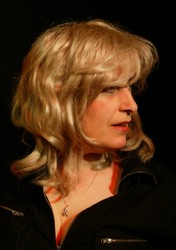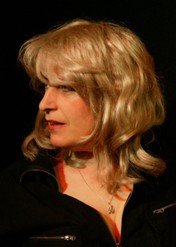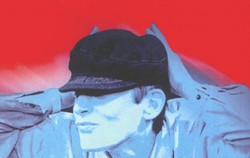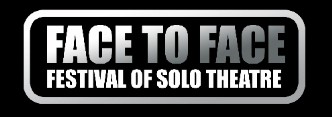FAQ - Claire Dowie
Main menu:
FAQ
ADULT CHILD/DEAD CHILD by Claire Dowie
From a drama festival in Scarborough
ajudicated by Alan Ayckbourn:
The Statement Drama Company
A lovely way to end the Festival. Alex Bliss (originally the director, so we understood, but eventually the third take over performer) treated us to a veritable tour de force.
I did not know the play before but was greatly impressed with the quality of the writing by Claire Dowie. Particularly, I was fascinated by the fact that the piece is actually sexless, i.e. it could be played by a man or a woman which, as a dramatist, intrigued me no end. Afterwards I began to conjecture how different it would have been played by a man. What differences in emphases and in our perception of the central character would there have been?
Rightly so, the show belonged to Alex Bliss. Her interpretation was intelligent, witty and extremely well paced. She explored the light and shade of the piece splendidly. What could been sentimental was extremely moving. What could have been maudlin was always saved by a wit and an agility, vocal and physical. The pacing and shaping were excellent; something I had been harping on about all week.
Ironic that one of the best directed pieces of the week was achieved by a performer!
Congratulations.
A: Very good.
ALAN AYCKBOURN
ADULT CHILD/DEAD CHILD
won BEST PLAY in the festival
FAQ ADULT CHILD/DEAD CHILD
Thankyou for your enquiry. I shall try to answer your questions but it may prove difficult since I wrote AC/DC a long time ago. Also I tend to write without knowing why till halfway through a run of performances (and sometimes not even then), so trying to explain or analyse doesn’t come easily to me.
So, intentions. AC/DC started because a psychiatric nurse told me that 90% of patients in mental hospitals were lonely or misunderstood people, not mad at all. I started wondering what it would be like to be among those 90%, trying to imaginatively put myself in that position. I wanted to look at mental health from a human perspective rather than a “categorised disorder” point of view. Which is why the character isn’t diagnosed with anything specific and why there is no gender attached to the character. Strangely, the only performance where I felt categorised was one when (I found out after the show) the audience was predominantly made up of psychiatrists, psychologists, psychotherapists etc., etc., (it was like a convention) and I think it was telling that it was the coldest and most distant audience I’ve ever played to.
Audience reactions. Not counting the psychiatric professions I wanted audiences to make up their own minds about the play, but I did want them to get involved and believe what they were watching, which is why I’ve always written and performed in an up-
I hope this helps in your research – I’m sure it doesn’t, as I said at the beginning, I find this sort of thing very difficult – it’s taken me two days just to write this drivel!
Claire Dowie.
WRITING AND PERFORMING SOLO
Claire Dowie Workshop
Claire Dowie illustrates her unique approach to writing and performing acclaimed award winning solo theatre shows.
Learn useful techniques for the creation and development of character and narrative and enhance your writing and performing skills.
Content
The course explores the difference between “acting” and “performing” in three steps: the creation or memory of characters and events; retelling the story of those events from the character’s viewpoint and recreating reality
in the imaginations of the audience.
Creating Characters from a range of stimuli
Becoming obsessed with our characters -
Uncovering our characters’ stories
Allowing the stories to emerge organically without manipulation
Focusing the narrative
Finding the perspective(s) from which to tell our stories
Building your show
At the end of the day there is an opportunity
to show the work created and receive detailed comments and suggestions for further development.





